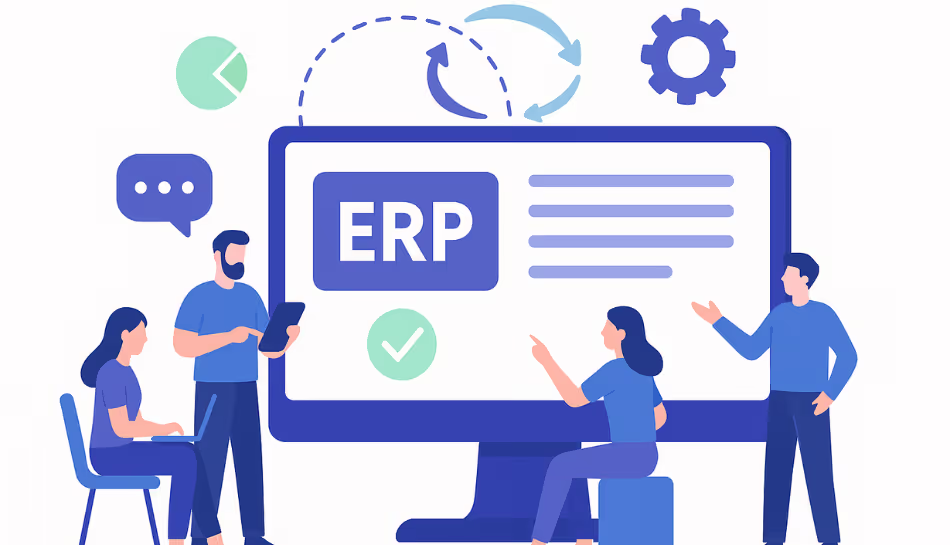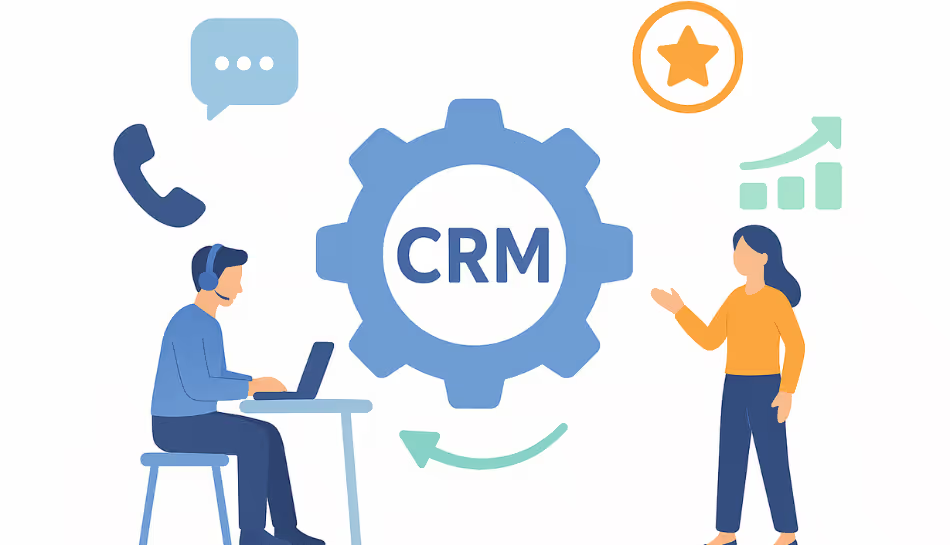
Modern businesses thrive on collaboration. Whether it's your sales team updating inventory status, or finance needing real-time purchase data, seamless communication is key. But when departments use disconnected tools or rely on endless emails, productivity takes a hit. That’s where ERP (Enterprise Resource Planning) software steps in, a central platform that brings everyone on the same page.
In 2025, with hybrid teams, remote workflows, and growing data volumes, using ERP software to enhance teamwork and productivity is no longer a luxury, it's a necessity.
Centralized Access to Information
One of the biggest roadblocks to effective collaboration is siloed information. ERP software solves this by centralizing data in one place. Every department, whether it’s HR, finance, logistics, or marketing, works on the same platform.
This means when a team updates data, it’s instantly reflected across the system. No need to send spreadsheets or manually pass information between departments. Everyone can view and work with accurate, real-time data.
For example, if your sales team enters a new order, the inventory team sees it immediately, and the finance team can invoice without waiting for emails or approvals. This type of ERP system for better team collaboration and workflow management saves time and avoids confusion.
Real-Time Communication and Workflow Visibility
ERP solutions for improving internal team communication offer built-in messaging, alerts, notifications, and dashboards. This allows teams to communicate in the context of tasks, not outside of them.
Let’s say a project manager notices a bottleneck in production. With ERP, they can tag the responsible team, attach the relevant documents, and request updates, all within the system. This level of visibility helps ensure accountability and transparency.
Workflow tools inside ERP systems also let you assign tasks, track progress, and get status updates without switching platforms or chasing down information.
Better Coordination Across Locations
With cloud-based ERP platforms, team collaboration and communication isn’t limited to a single office. Remote teams, field staff, and different branches can log in from anywhere and collaborate in real time.
For businesses with multiple locations or distributed teams, this reduces dependency on email chains or weekly sync-ups. Updates happen live, so decisions can be made faster, and teams stay aligned no matter where they are.
Reduces Miscommunication and Redundant Work
When teams use different tools or lack visibility into what others are doing, duplicate work happens. Two departments might input the same data or follow up on the same lead, wasting time and effort.
How ERP software improves team communication and collaboration is by offering one version of the truth. With everyone working on the same system, misunderstandings are fewer, and coordination becomes smoother.
You eliminate questions like:
- “Who updated this?”
- “Is this the latest version?”
- “Did marketing already contact this client?”
Encourages a Culture of Transparency
ERP systems make operations more transparent. Managers can see what their teams are working on, and team members can understand how their roles fit into the bigger picture. This not only improves communication but builds a more informed and motivated workforce.
When employees feel connected to the company’s goals and understand cross-department processes, collaboration becomes more natural. ERP promotes this alignment by making data and decisions visible.
Final Thoughts
In today’s business world, collaboration isn’t just about talking, it’s about sharing knowledge, acting on data, and working together with speed and clarity. ERP software enables exactly that.
From real-time updates to centralized workflows, the benefits of ERP for team collaboration and communication are game-changing. By breaking down silos, improving visibility, and offering the tools teams need to stay connected, ERP systems are helping companies of all sizes move faster and work smarter.
If your organization still depends on fragmented tools, it may be time to rethink your approach. With ERP, collaboration is not just easier, it's built into the system itself.

